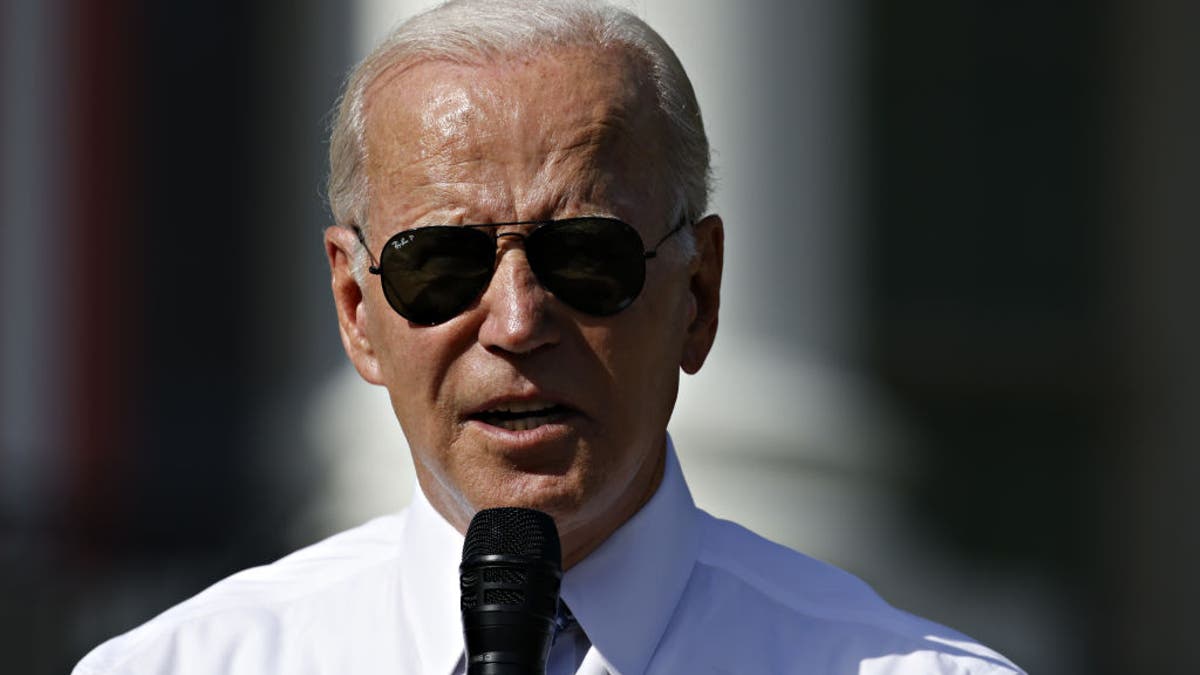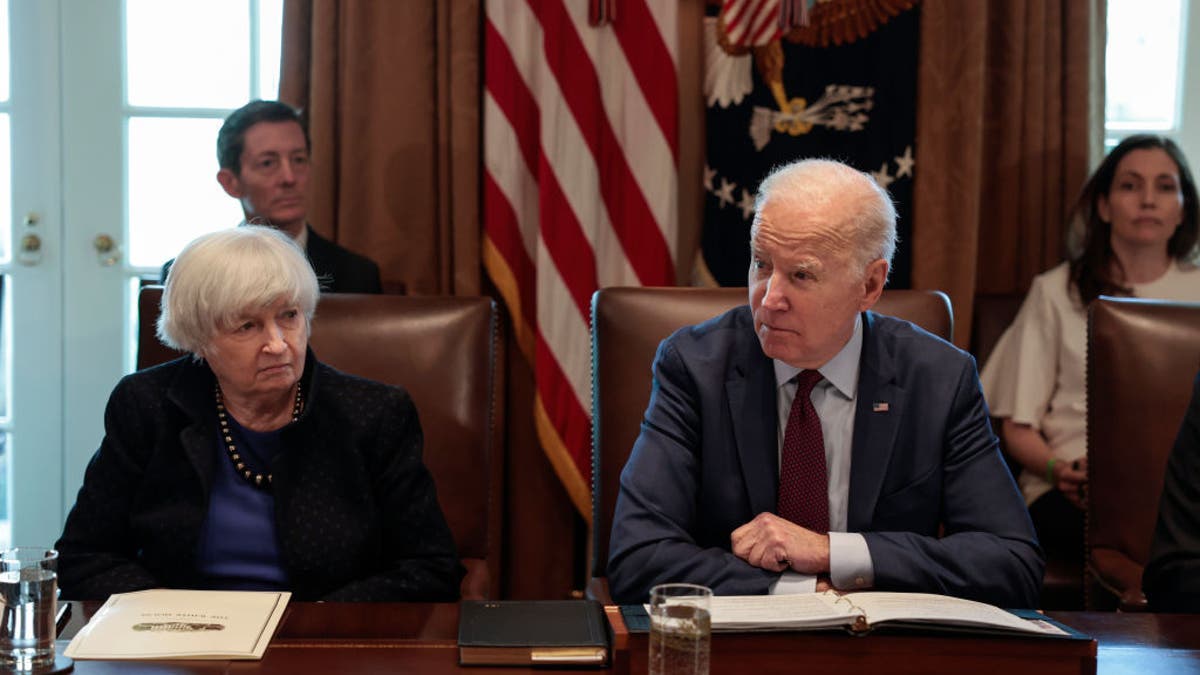Senate votes to increase federal debt limit as inflation surges
"Special Report" panel discusses resistance toward Biden's "Build Back Better" agenda.
The U.S. national debt has passed $31 trillion for the first time in history.
Treasury Department data released Tuesday showed that the total national debt was $31.123 trillion as of Monday.

President Joe Biden speaks during an Inflation Reduction Act event on the South Lawn of the White House on Sept. 13, 2022. (Samuel Corum/Bloomberg via Getty Images)
The new milestone was reached even as the federal government's insatiable spending has slowed considerably as the COVID-19 pandemic has waned. In the months following the outbreak, the national debt rose by $1 trillion in just a month’s time — not just once but twice in 2020.
As a result, the federal government spent $3.1 trillion more than it received in 2020, and it spent $2.8 trillion more than it received the following year.
In 2022, the budget deficit is expected to be about $1 trillion. Some experts believe $1 trillion per year in new debt is the floor given growth in entitlement spending as well as new spending priorities set by Congress this year. Those priorities include the health and environmental policy bill known as the Inflation Reduction Act and assisting Ukraine in its war with Russia.

Treasury Secretary Janet Yellen listens as President Joe Biden speaks to reporters at the White House on March 3, 2022. (Anna Moneymaker/Getty Images)
NATIONAL DEBT NEARS $31 TRILLION AND COUNTING
While much of the drop in the annual budget deficit is due to the easing of emergency COVID spending, President Biden has praised his administration for slowing the rate at which the government accumulates new debt.
"You know, Republicans talk about being fiscally responsible," Biden said in September. "Last year, I reduced the deficit $350 billion. You know how much this year, not counting the Medicaid changes? One trillion seven hundred billion dollars. So, I don’t want to hear it from Republicans about fiscal responsibility."
Republicans have been arguing for several weeks that voters are ready for reduced federal spending, which they say is a major contributor to higher inflation levels, and they have also said this issue is a reason to give the GOP control of Congress in the midterm elections.

President Joe Biden, seated, has praised his administration for slowing the rate at which the government accumulates new debt. (Drew Angerer/Getty Images)
In August, Sen. Ted Cruz, R-Texas, said the Democrats’ Inflation Reduction Act amounts to hundreds of billions in new spending that will "drive up inflation and prices, hammer small businesses and American manufacturing, increase the price of gas and sic the IRS on Americans, all while raising taxes on Americans in nearly every tax bracket, including those who make less than $400,000 a year."
CLICK HERE TO GET THE FOX NEWS APP
Moments after Treasury released the new number, Rep. Chip Roy, R-Texas, tweeted that the national debt was "$21 trillion just 5 years ago. Think about that."
"This is what happens when Congressional Democrats engage in unchecked partisan spending — and hardworking Americans are paying the price," added Rep. James Baird, R-Ind. "The American people deserve better."












































